The Big Garden Birdwatch is back, offering you the chance to learn more about the bird species that visit your garden.
Birdwatching is a relaxing and fascinating activity for all ages to enjoy from the comfort of home – and is a great way to get children interested in wildlife. By taking the time to monitor and record your garden birds, you'll be playing an important role in helping conservationists build a valuable picture of how each species is faring and form an action plan to help native bird species.
See our round-up of the best bird box cameras for wildlife watching and best bird identification books.
When is the Big Garden Birdwatch 2025?
The annual Big Garden Birdwatch returns on 24th–26th January 2025 for the UK's largest garden-based citizen science project.
What is the Big Garden Birdwatch?
2025 marks the 46th RSPB Big Garden Birdwatch, which sees keen birdwatchers across the UK join the largest garden wildlife citizen science project by spending one hour tracking the birds they see in their gardens.
Why did the RSPB start the Big Garden Birdwatch?
Not only is it a great way to enjoy a spot of winter birdwatching, but it's a vital opportunity for the RSPB to keep tabs on the population of British birds.
In the past 50 years, Great Britain has lost more than 38 million birds. In 2021, 70 new birds species were added to the RSPB's Red List, meaning that 1 in 4 species are under serious threat. The RSPB continue to rely on the help of people across the country to help record the birds they see in order to provide a vital snapshot of which species are thriving, which are struggling, and perhaps provide clues as to why, and how they can be protected.
It also supplies conservationists with data tracing those birds that are doing well.
How to take part in the Big Garden Birdwatch
This year’s event takes place on 24th – 26th January 2025. The public is asked to spend just one hour watching and recording the birds in their garden or local green space, then send their results to the RSPB.
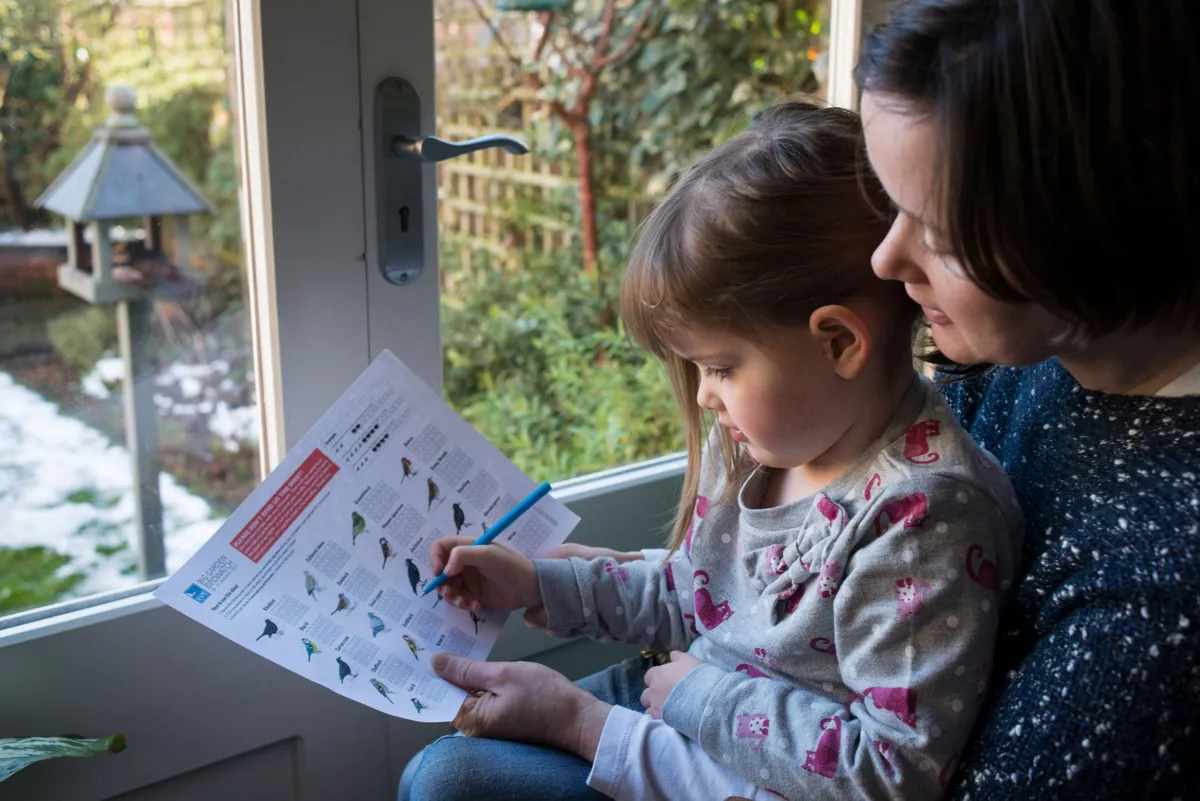
To take part in the Big Garden Birdwatch 2025, simply watch the birds in your garden, from your balcony, or local park for one hour at some point over the three days the Birdwatch is taking place. Only count the birds that land, not the ones flying by.
There's no need to prepare for the Birdwatch, but if you want to get ready early, you could put up a bird feeder to attract more birds to your garden, giving it a clean after each refill.
The RSPB also recommends that you don't tidy your garden up too much over winter, making sure there are plenty of seeds and berries available for wildlife to feed on during the cold months. It's also good to leave out fresh water, making sure to keep it ice-free. Read more about how you can prepare your garden for winter birds.
Once you have recorded the birds that you've seen, simply submit your results online to the RSPB.
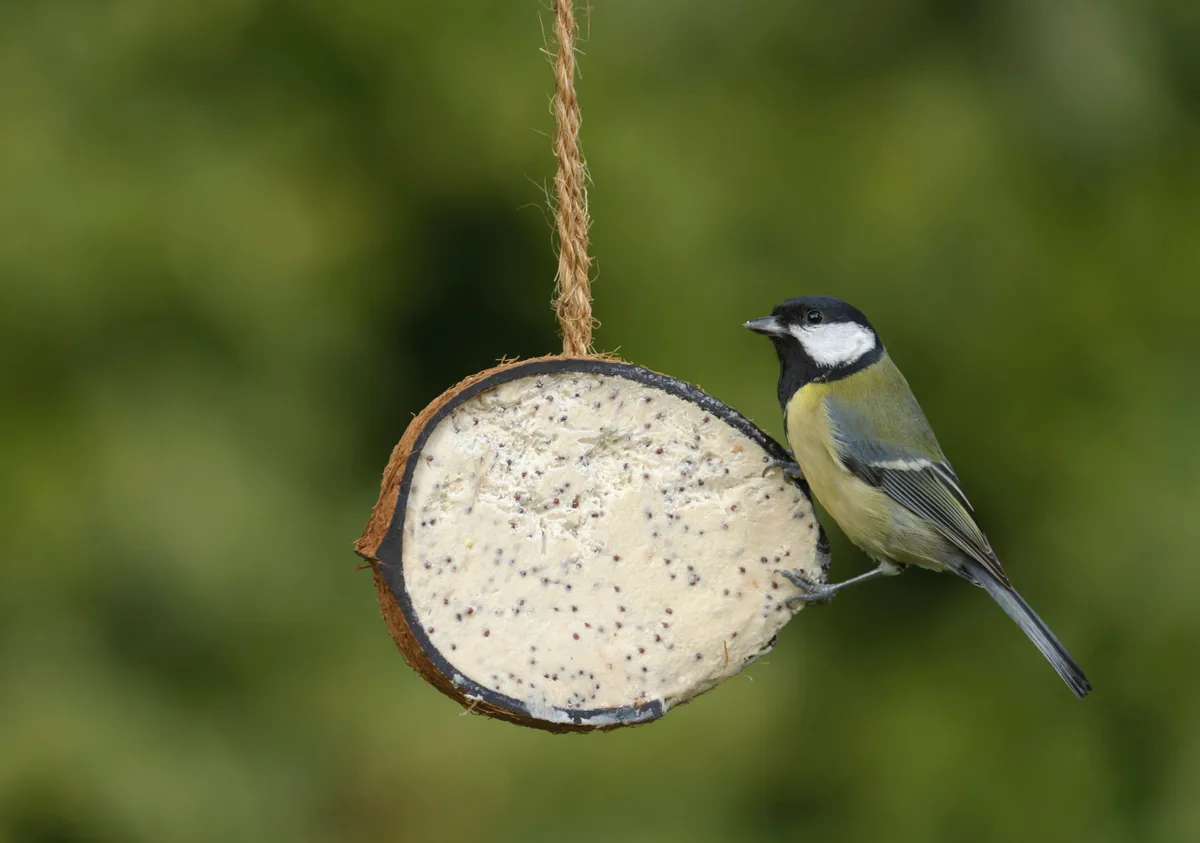
Garden birds to spot
House sparrow
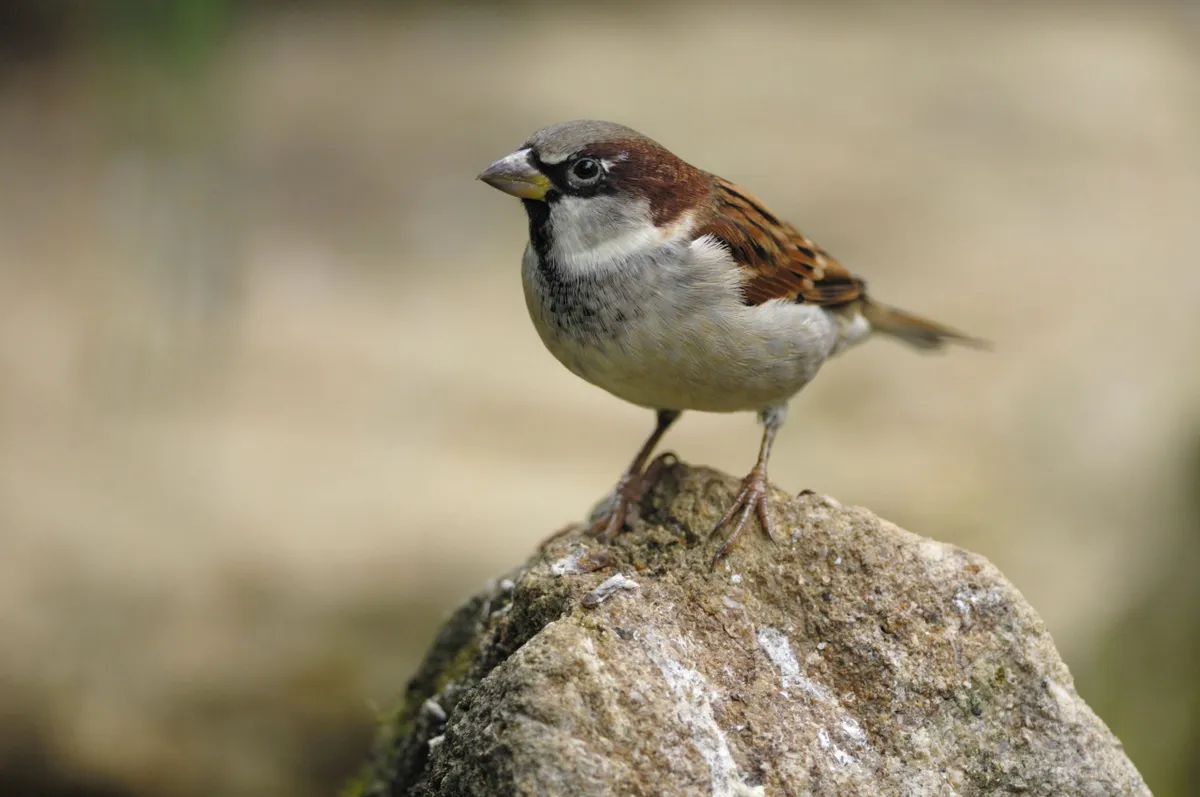
The house sparrow (Passer domesticus) is a small, adaptable bird found worldwide. With a stout body, brown and grey plumage and a distinctive black bib (males), it thrives in urban and rural areas. Social and vocal, it feeds on seeds and insects, often nesting near human habitation.
Robin
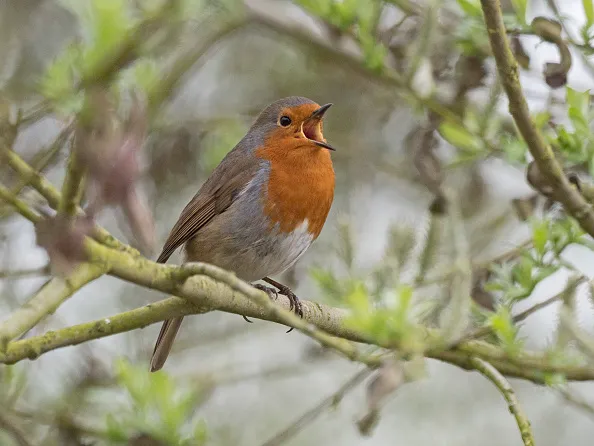
The robin (Erithacus rubecula) is a small, plump songbird with an orange-red breast, brownish-grey back and a white belly. Native to Europe, North Africa and parts of Asia, it thrives in woodlands, gardens and parks. Known for its melodic song, it is territorial and often seen year-round.
Dunnock
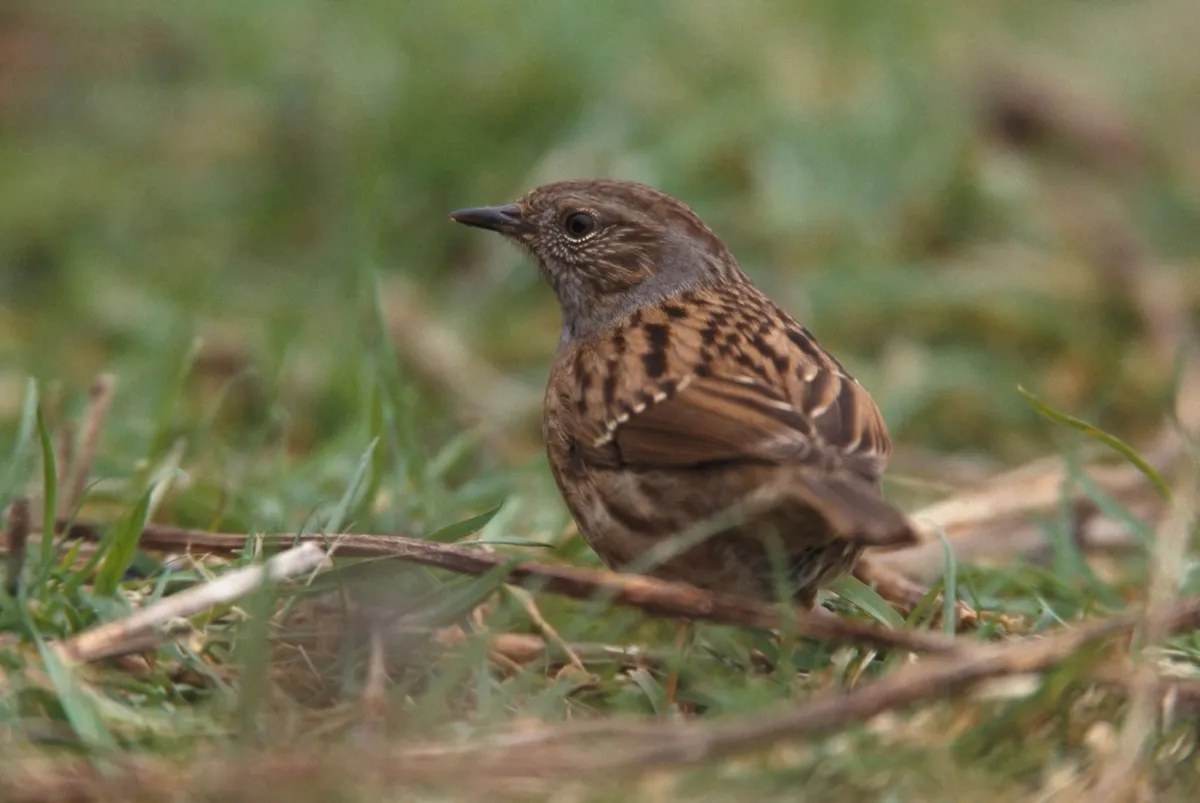
The dunnock (Prunella modularis) is a small, brown-streaked songbird found across Europe and Asia. It has a slender beak, greyish head and a shy, unobtrusive nature. Preferring hedgerows and woodland edges, it forages for insects and seeds. Notably, dunnocks exhibit complex mating systems, including polyandry and polygamy.
Waxwing
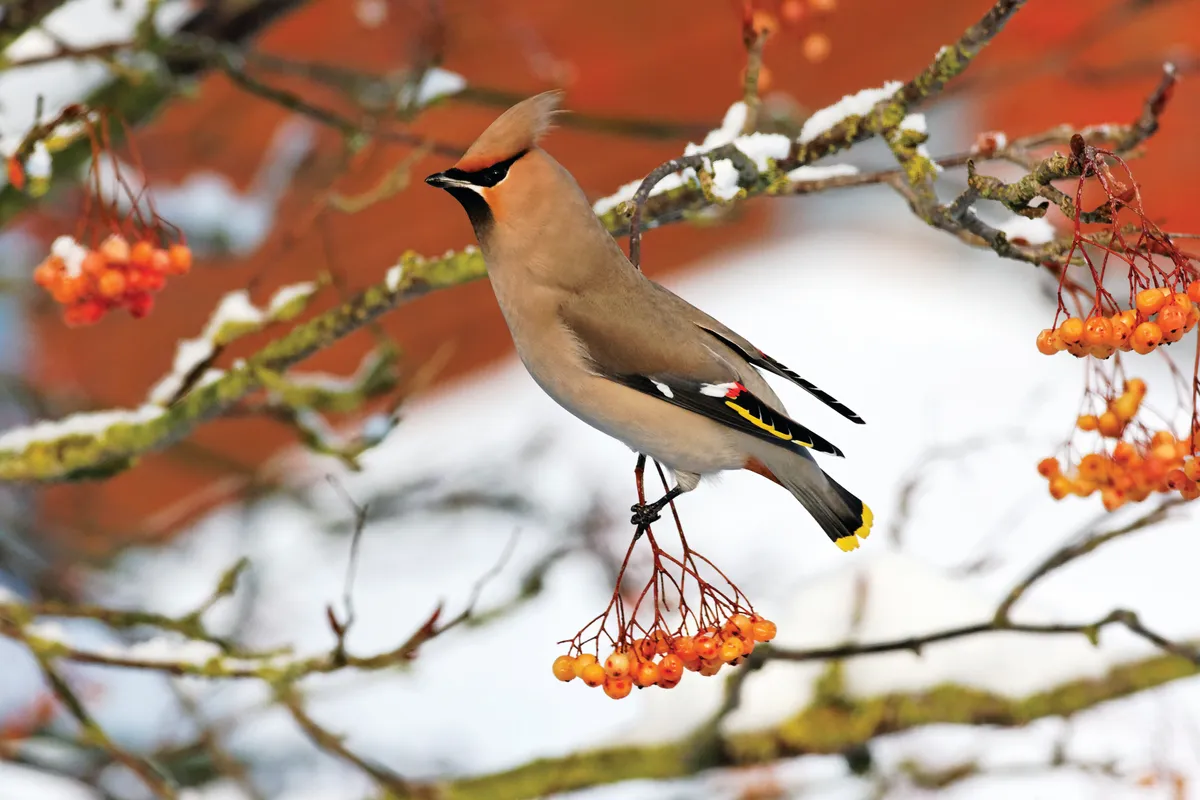
You never known what might turn up. The striking waxwing with its peachy plumage and crest is a scarce winter visitor – arriving in gardens to plunder berries such as these rowans.
Goldfinch
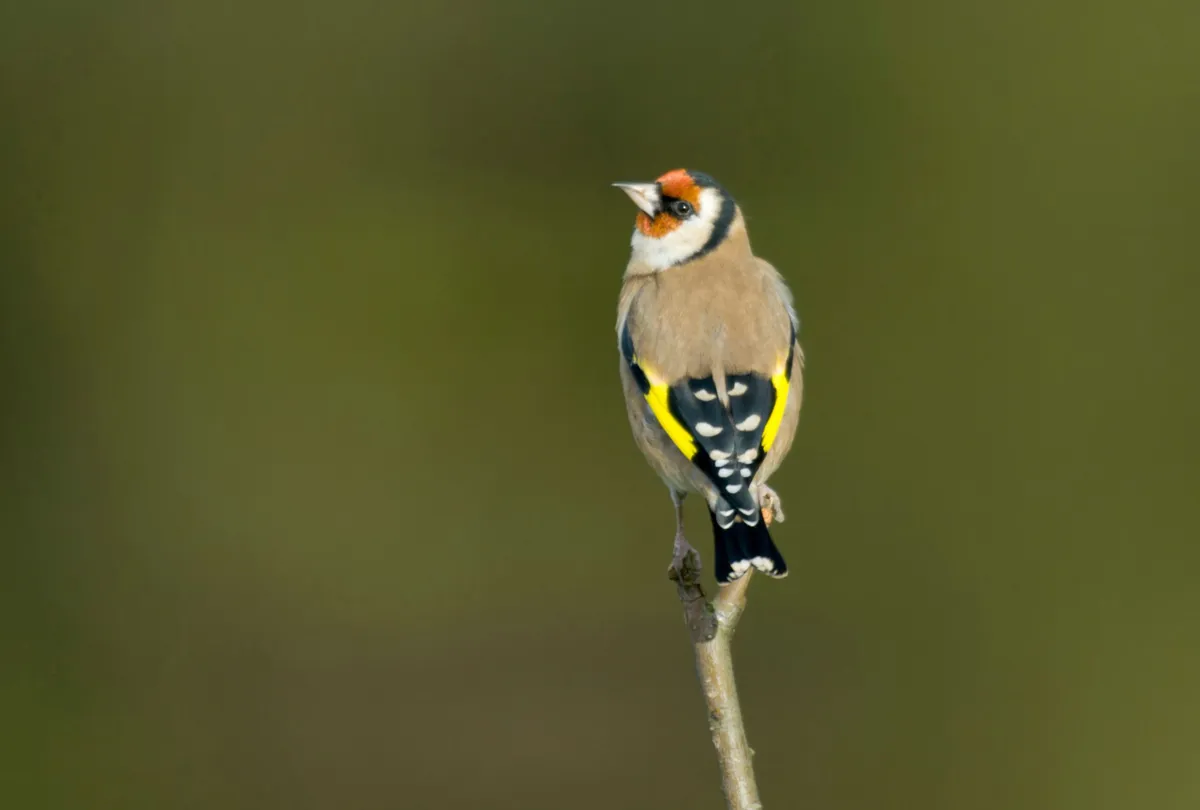
The goldfinch (Carduelis carduelis) is a small, brightly coloured songbird with vibrant yellow plumage, black-and-white wings and a cheerful, musical song. Found in gardens, meadows and woodlands, it feeds on seeds and insects. Agile and social, goldfinches are known for their acrobatic flight and striking beauty, often seen in flocks.
Blue tit
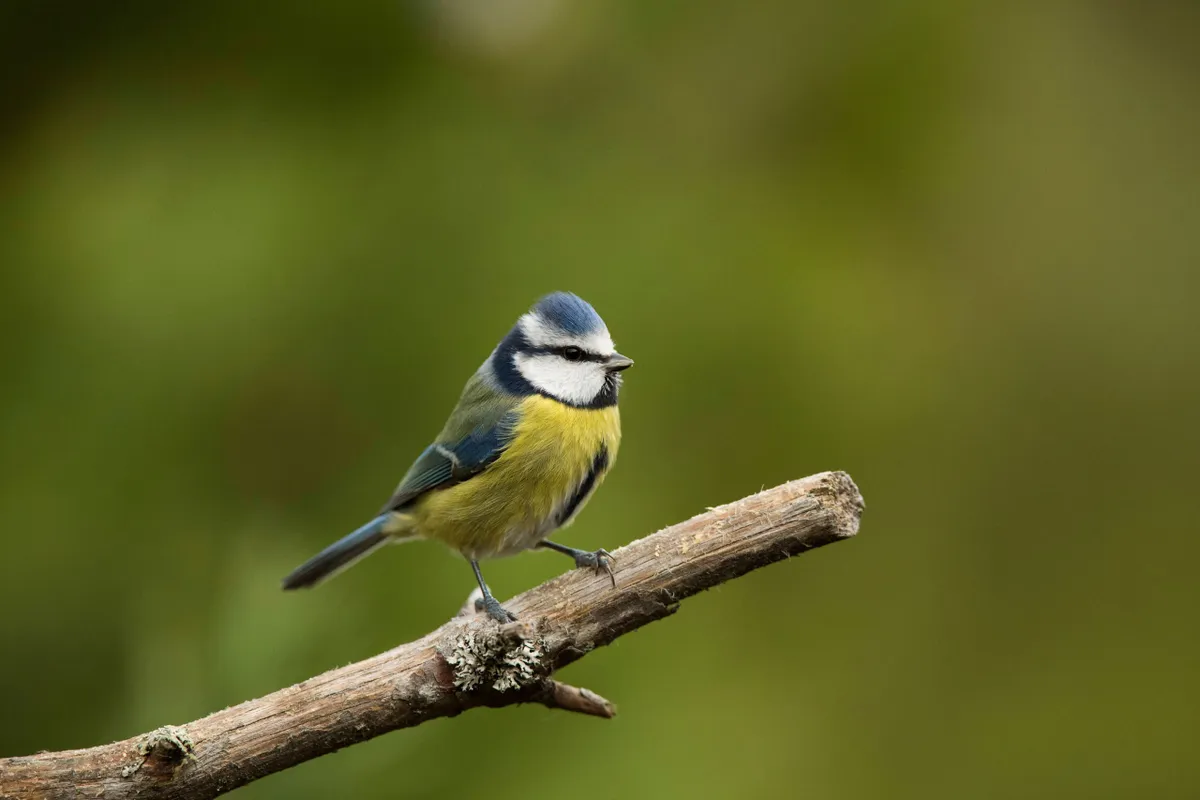
The blue tit (Cyanistes caeruleus) is a small, vibrant songbird native to Europe and western Asia. It has striking blue, yellow, white and green plumage, a distinctive blue cap and a black eye stripe. Agile and acrobatic, it thrives in woodlands, gardens and parks, feeding on insects and seeds. These tiny garden birds relish a well-stocked feeder (see our guide to the best bird food for more information). Learn more about tit species found in the UK in our handy guide.
Starling
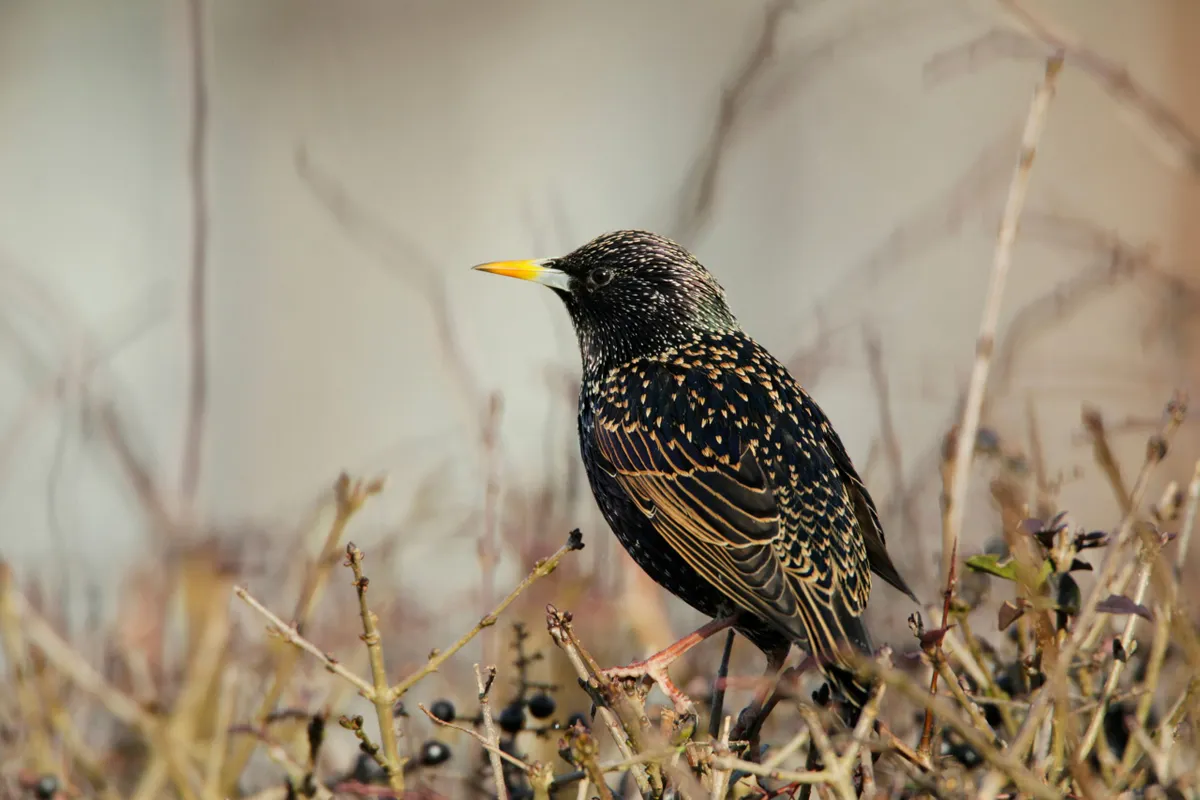
The common starling (Sturnus vulgaris) is a medium-sized, highly social songbird with iridescent black plumage that shimmers with purple and green hues. Known for its mimicry skills, it thrives in diverse habitats across Europe, Asia and North America. Agile in flight, it forms large murmurations, creating mesmerising aerial displays.
Blackbird
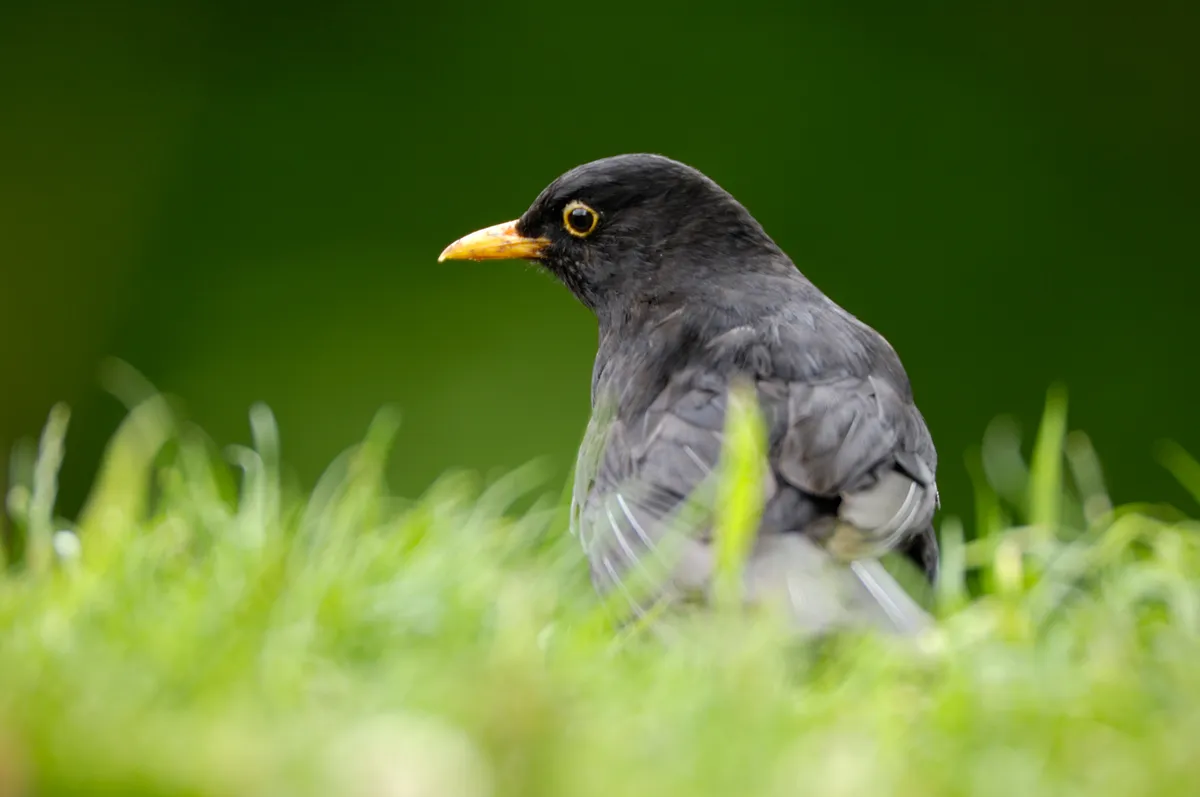
The Eurasian blackbird (Turdus merula) is a medium-sized songbird with glossy black plumage in males and dark brown in females. It has a bright yellow-orange beak and eye-ring. Found across Europe, Asia and North Africa, it thrives in woodlands, gardens and parks, singing melodious, flute-like songs. Learn more about the fascinating blackbird in our expert guide.
Chaffinch
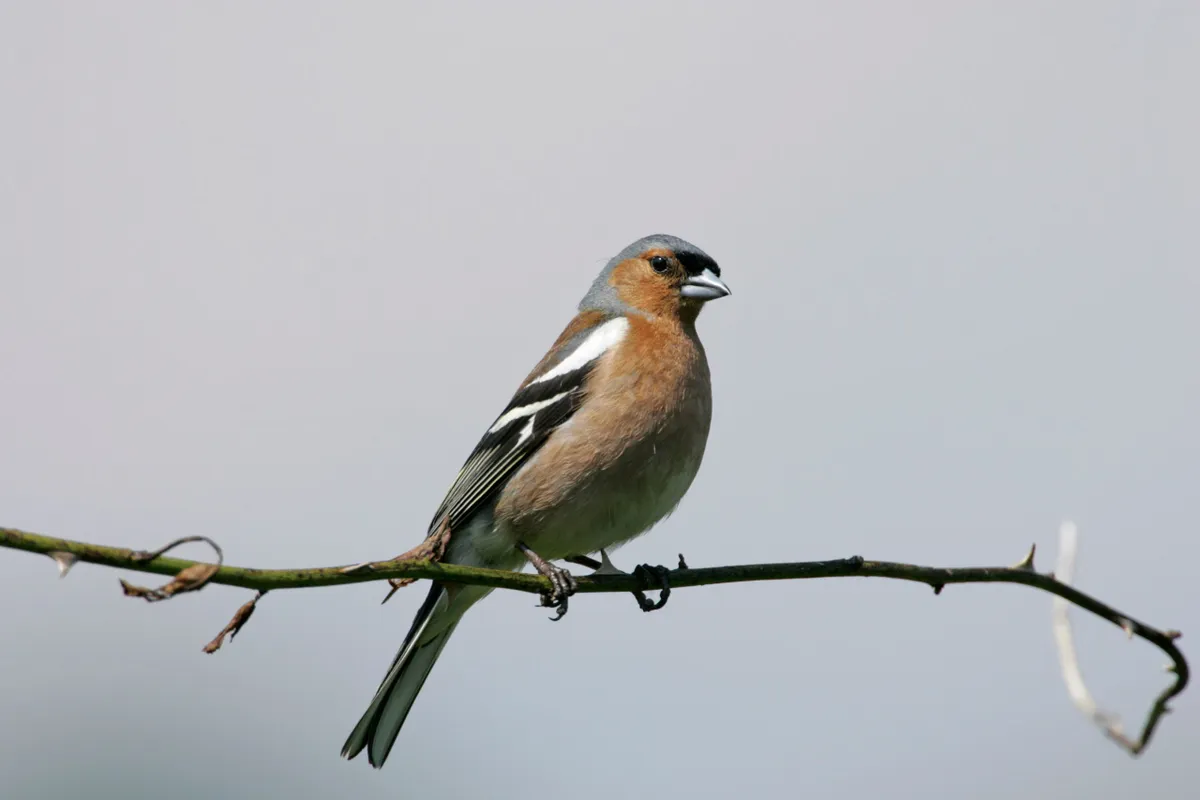
The chaffinch (Fringilla coelebs) is a small, colourful songbird found across Europe and parts of Asia. Males have vibrant reddish underparts, blue-grey crowns and white wing bars, while females are duller. They thrive in woodlands, gardens and parks, singing melodious calls. Omnivorous, they feed on seeds, insects and fruit. See our finches guide for more insight into this characterful species.
Wren
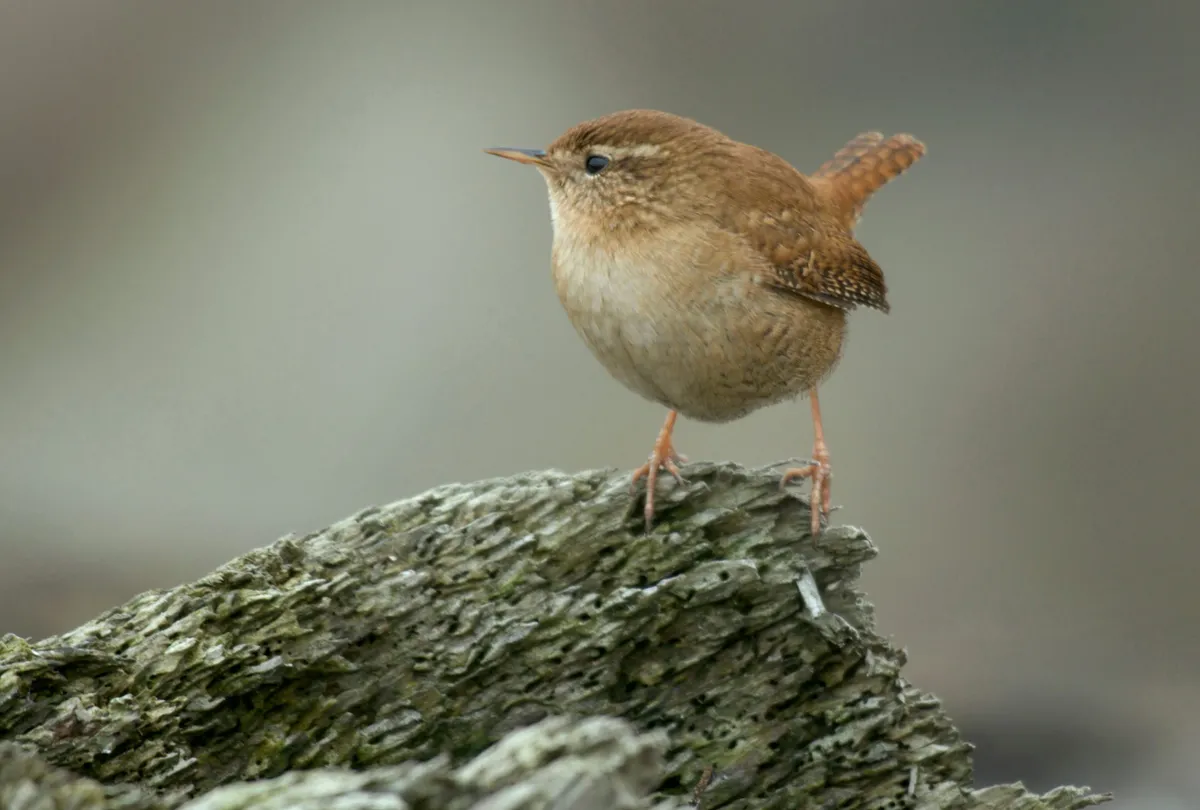
The Eurasian wren (Troglodytes troglodytes) is thought to be Britain's most common bird, with 11 million pairs. It is a tiny, round-bodied bird with brown plumage, fine barring and a distinctive upright tail. Found across Europe and Asia, it thrives in woodlands, hedgerows and gardens. This energetic bird is known for its loud, melodious song and secretive, agile movements among dense vegetation.
How to attract birds to your garden
From putting out feeders to providing fresh drinking water, there are a number of easy ways you can attract birds to your garden. See our garden bird guide for more advice and inspiration.
